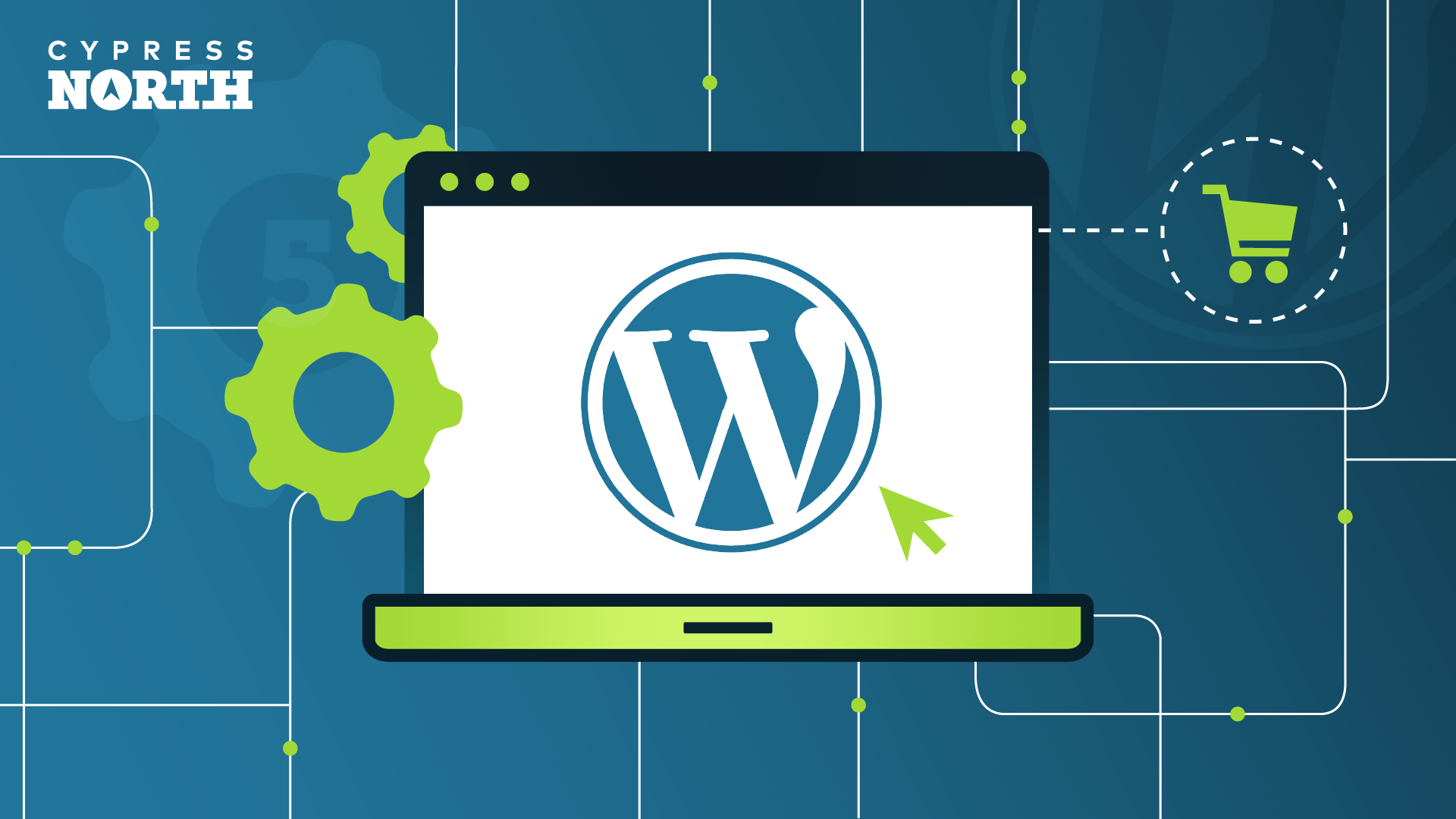Why WordPress Remains a Top CMS Choice

People have a lot of feelings about WordPress, especially given all the drama going on with the project this past year.
Detractors view it as an amateur tool that’s not suitable for proper businesses. Others see it as an antiquated relic that companies should move on from. These views are often influenced by developers who aren’t huge fans of working with the system and would prefer a more modern tech stack to program on.
The reality, however, is that more than 60% of all Content Management System (CMS) deployments use WordPress. It powers major sites like NASA, NBC, Chevron, Conde Nast, Whitehouse.gov, and millions of others – and for good reason.
In the hands of a competent and experienced developer, WordPress has a lot to offer, especially to the people that matter most – the content editors.

My Top 5 Reasons WordPress is Still a Good CMS
As with all software development, there are good and bad techniques that can produce either a good or bad end product.
With WordPress, the range of quality is extreme because of how many ways there are to create a website with the system. There’s a big difference between a site created using a no-code page builder vs. a site that has been custom programmed for your business. Likewise, the quality of a custom-programmed site varies dramatically.
With that in mind, here’s why I still think WordPress is a good choice for your CMS – with some advice on the “double-edged swords” you should keep in mind and how you can address those.
5. Massive Adoption and Popularity
WordPress powers an estimated 44% of all websites and makes up 60% of all CMS-based websites. That amounts to over 540 million websites!
This popularity means that there are abundant options for every piece that goes into creating, hosting, and maintaining a website.
It also means there’s an entire industry behind the development and support of WordPress. You’ll have no trouble finding a person or agency to help you create a site. And if you’re not happy with them or they disappear, you’ll have no problem finding another.
This popularity also ensures the health and longevity of the platform you’re investing your time in. Many new technologies come and go, leaving early adopters in the lurch. With WordPress, you can be confident in its staying power.
Things to Consider
- Its huge reach and popularity make WordPress a big target for malicious threats like bots, malware, and phishing attempts.
- Having such a large number of WordPress designers and developers means there are a lot of bad ones, many great ones, and a huge amount in the middle.
Overcoming Those Potential Drawbacks
If you’re concerned about either (or both) of those negatives, having a trusted partner with expertise in developing, hosting, and maintaining WordPress is key. When built and configured correctly, your site can be made highly secure and work hard for you for many years.
4. Open Source, Self-Hosted, and Free
For individuals, startups, enterprises, and everyone in between, investing time and money into a foundation you can own and take with you just makes sense. Build on your own land, as we like to say.
The best companies we work with insist on this point because they know the pain of vendor lock-in. With WordPress, you have full access to the source code, the database, and the assets. You can modify it, host it yourself, move it between vendors, or do anything else you might need to in the future.
This is not the case with the majority of other CMS solutions out there. With web page builder tools like Framer or Webflow, hosted headless platforms like Contentful, or Sanity, you pay to use their platform forever – and if you decide to leave, you have to essentially start over.
Things to Consider
- Being free, self-service, and customizable means there’s more for you to handle on your own. You’ll be responsible for figuring out and paying for hosting, keeping the software up to date, managing backups, and more.
Overcoming Those Potential Drawbacks
The good news is that there are plenty of fully managed hosting options for WordPress that can help with those negatives. Kinsta, WPEngine, and Pagely are all great choices.
Again, having a trusted technology partner remains key.
3. Flexibility and Customization
Being open source means there’s very little you can’t do if you have a knowledgeable team. You have direct access to the source code and can modify even the core functionality if you really need to. You also have full access to the database and can create your own tables outside of the WordPress data.
WordPress has a robust code hook and filter system that allows developers to tap into specific points of the page-rendering lifecycle and modify or create new features. This provides a system for extending existing features or plugins without having to modify the original.
There are also custom field plugins that are commonly used with custom development to create completely tailored solutions. Advanced Custom Fields and Carbon Fields are the most popular. Using these systems, developers can create a content-editing experience tailored to your site specifically, in a way that’s flexible and reusable instead of a general-purpose blank canvas.
The WordPress CMS can also be used as a headless system if you really want to, giving you the option of building your own front end in whatever technology you like, while also giving your content editors the editing experience they prefer.
Things to Consider
- All this flexibility and customization can mean that you get a different experience with each WordPress installation you might encounter.
- The more your site has been customized, the more you might need to rely on a development partner in the future.
Overcoming Those Potential Drawbacks
A good developer will build a custom solution following the standard best practices for the PHP programming language and WordPress. While you may still need a developer from time to time, it should also be built in a way that allows the client to edit almost everything.
A well-built solution is easily transitioned to another developer if it follows common best practices.
2. End User Familiarity
This is one of the biggest reasons our clients choose WordPress. With its massive adoption and long history, chances are the client already has experience with WordPress in some capacity.
While the ease of use has arguably gone down a bit with the Gutenberg editor, a capable development team can make editing content very easy while still adhering to the established site design. Content managers shouldn’t be afraid of breaking the site when creating and editing content.
One of our most important mantras at Cypress North is that we don’t choose the tools WE like best. We develop on the systems the client likes best, or that are best suited for the task. We’ll have an open conversation about the pros and cons of different options, but the majority prefer WordPress.
Things to Consider
- Since the quality of a WordPress site can vary so much, it may leave a client feeling dissatisfied with the system if they’re coming from a poorly built one. This could lead to exploring other options without fully understanding the downsides.
Overcoming Those Potential Drawbacks
Even if someone has had to deal with a poor WordPress site, they are often delighted to see how a properly built one solves their pain points.
In our experience, most who have built their next site on a different platform end up regretting it. We’ve moved many clients off headless systems and back onto WordPress.
1. Ecosystem
The WordPress ecosystem is unmatched in the CMS space. It can’t be understated just how important this is.
Plenty of other systems take great approaches to content management, have great design tools, and more. However, when a client wants to add a seemingly routine plugin to their site, and the platform doesn’t have a solution, they become frustrated that they can’t accomplish their goal.
This issue is made more apparent when it comes to integrating with other common platforms that enterprises tend to use. It’s a tough pill to swallow if they need Enterprise Resource Planning (ERP) integration, single sign-on, or marketing automation. What would be a quick plugin install on WordPress becomes a new custom software development project instead.
Because of the size of the WordPress market, with nearly 100,000 plugins available, there’s pretty much a solution for everything you can think of. There are some amazing systems delivered as plugins, like a complete ecommerce solution with WooCommerce, visual page builder systems, membership and subscription platforms, and so much more.
There are also tens of thousands of themes you can choose from if you’re not ready for a custom-built site.
Things to Consider
- The ease of installing plugins can lead to a bloated and slow website if you’re not careful.
- The quality of plugins varies a lot. Poorly built plugins can slow down your site, break your site, and create critical security issues.
Overcoming Those Potential Drawbacks
It’s important to choose your plugins carefully, relying on industry-best solutions for only what you absolutely need. At Cypress North, we have a handful of best-in-class plugins we tend to reach for. Still, we often build specific functionality ourselves – either within the theme or as a plugin so we deliver a focused and performant system.
Cypress North’s Expertise in WordPress
Cypress North specializes in custom software development and has created more than 100 hand-crafted WordPress sites since 2010. Our clients choose WordPress because it’s the CMS they are most comfortable with and prefer. Wise enterprises understand the value of selecting a mature and proven framework combined with an experienced team over chasing the latest trends.
There is very little you can’t accomplish with WordPress. We’ve helped businesses deeply integrate marketing automation tools, headless ecommerce systems, learning management systems, proprietary data and APIs, and so much more. In addition, we work directly with our performance marketing, SEO, and data analytics teams to provide the best ranking sites with the most complete end-to-end tracking possible.
If you’re looking for an agency you can rely on for your next project, whether that is built using WordPress, another CMS, or a totally custom solution, get in touch with us to see how we can help.
Meet the Author

Matthew Mombrea
Matt is our Chief Technology Officer and one of the founders of our agency. He started Cypress North in 2010 with Greg Finn, and now leads our Buffalo office. As the head of our development team, Matt oversees all of our technical strategy and software and systems design efforts.
With more than 19 years of software engineering experience, Matt has the knowledge and expertise to help our clients find solutions that will solve their problems and help them reach their goals. He is dedicated to doing things the right way and finding the right custom solution for each client, all while accounting for long-term maintainability and technical debt.
Matt is a Buffalo native and graduated from St. Bonaventure University, where he studied computer science.
When he’s not at work, Matt enjoys spending time with his kids and his dog. He also likes to golf, snowboard, and roast coffee.

